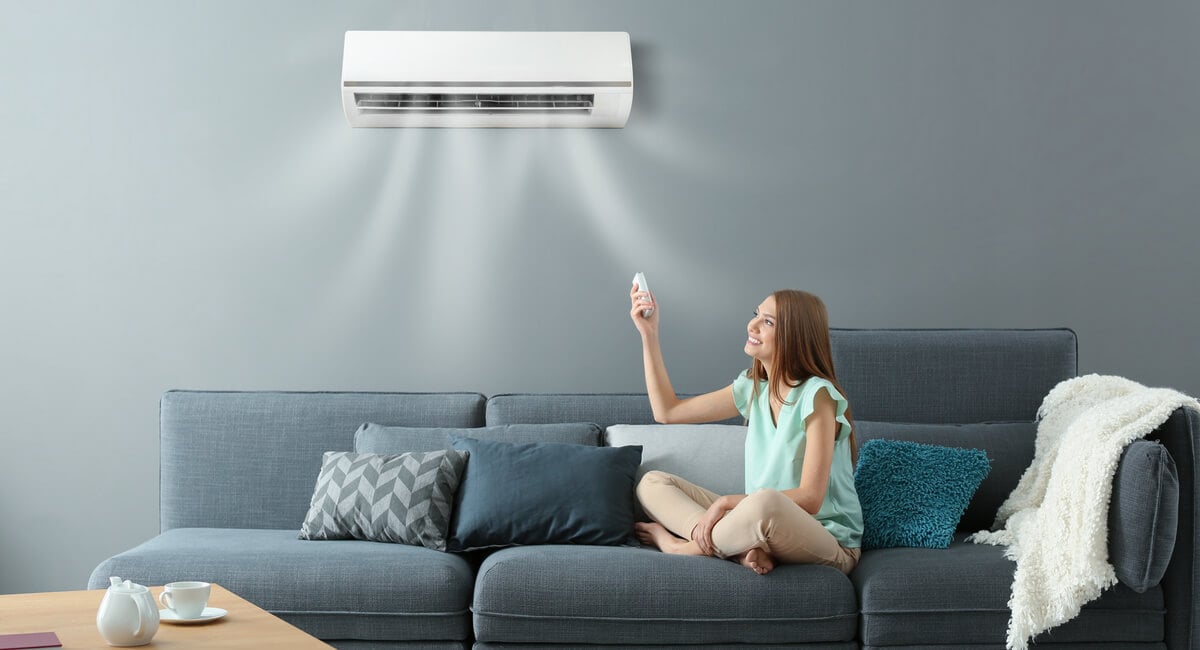Your cooling system is one of the most important features in your home, especially if you live in a warm climate. An efficient cooling system keeps you safe and comfortable, but an old or unreliable system can run up your electric bill without offering much in return.
If you’re planning on replacing your home’s cooling system, you should carefully consider all of your options. There are a wide variety of different cooling systems available and the right choice depends on your home’s infrastructure and a number of other factors. Here is everything you need to know about home cooling systems:

Types of Cooling Systems
Each type of cooling system has unique features and benefits. The following descriptions will help you make an informed decision when it’s time to invest in one.
Central Air
Central air carries cool air through a series of ducts inside the home’s walls. The cool air enters each room through registers, which are small openings covered by a grate. Then, warm air travels back through the ducts to the AC unit to be cooled down.
Central air is a popular cooling option and offers several benefits. The system is highly efficient, so it’s often the most cost-effective choice for homeowners. Because each room has its own return and supply registers, you can also precisely adjust the temperature in the individual rooms throughout your home. If you prefer your living room to be cooler and your bedroom to be warmer, you can accomplish both at once. Additionally, central air systems are much quieter than some other systems because the AC unit is located outside.
The up-front cost of installation is the biggest downside to choosing a central air system. Unless your home already has the ductwork in place, you’ll probably have to pay a significant cost to get the system up and running.
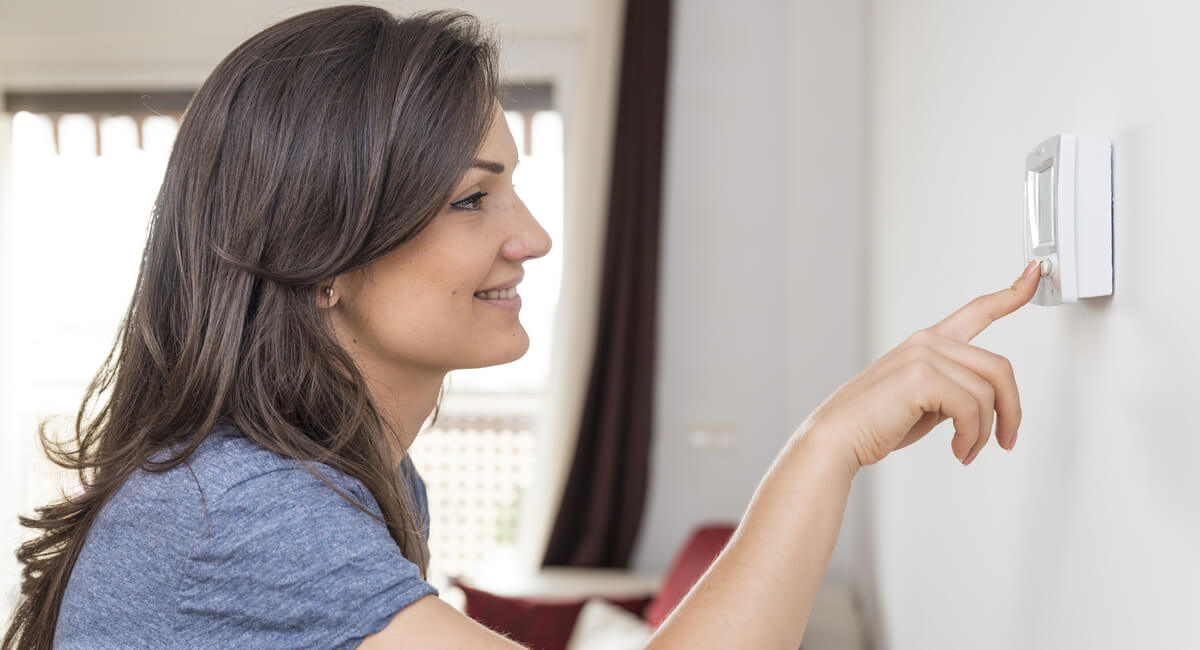
Ductless AC
Ductless systems, also known as mini-split systems, utilize indoor units connected to an outdoor compressor. Each room in the home has its own unit that contains evaporator coils. These coils cool the warm air as it blows over the unit, and refrigerant then carries the heat to the outdoor unit.
Ductless AC systems are considered to be the most energy-efficient option because they don’t lose any energy through ductwork. Although installing a ductless system can be expensive, you can save a great deal of money over time by reducing your utility bills. Like central AC systems, ductless systems are also very quiet because the compressor is kept outdoors.
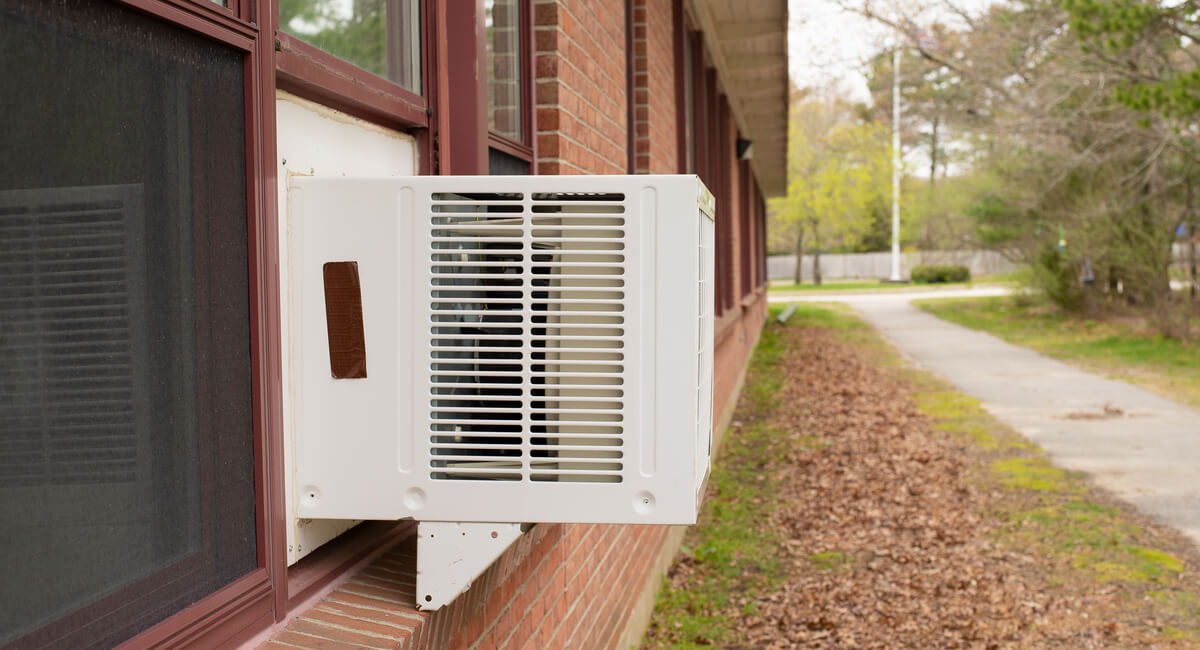
Window AC Units
Window AC units are secured to a window and deliver cool air through a vent. There are several pros and cons to using window units to cool your home. Window units are the least expensive cooling systems and they usually require little to no maintenance. In most cases, homeowners can install the units without professional assistance. Although they’re not quite as efficient as ductless or central air systems, they are becoming more efficient and can be very effective for cooling smaller rooms.
However, relying solely on window units to cool your entire home can be difficult. You may need to install a window unit in almost every room if you want the whole house to stay cool. Because the unit is installed in a window, it can also block the sunlight, obstruct your view, and prevent you from opening the window for fresh air. Window AC units are much louder than other systems, too. While some people like the white noise from a window AC, others can be extremely bothered by it.
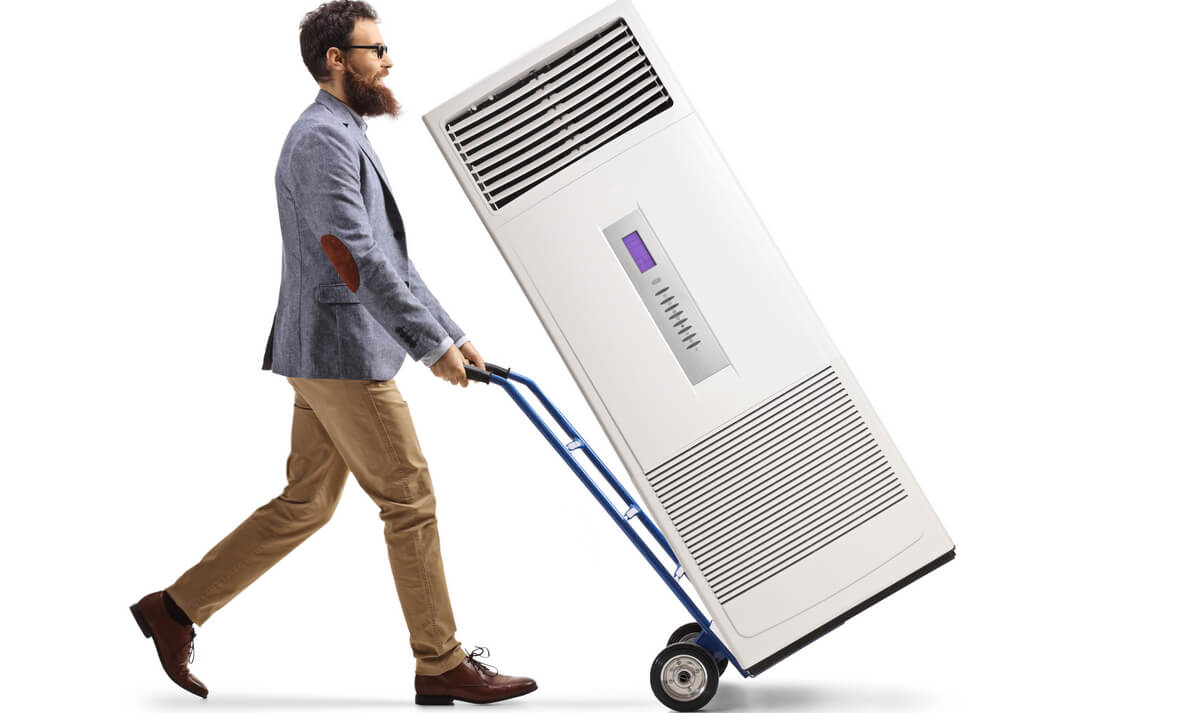
Portable AC Units
Portable AC units are similar to window units in many ways. Instead of the unit sitting directly in the window, though, a hose connects the unit to the window. Like window units, portable ACs are usually easy to install and are much more budget-friendly than the more complex systems. Most portable units are also on wheels, so you can adjust their positioning in the room based on your cooling needs. The hose is not very long, though, so the unit does have to stay fairly close to the window.
The disadvantages of a portable unit are mostly the same as a window unit. While the AC is installed, the system can block natural light and stop you from opening the window. Portable ACs are also noisy, which is a major issue for some homeowners.
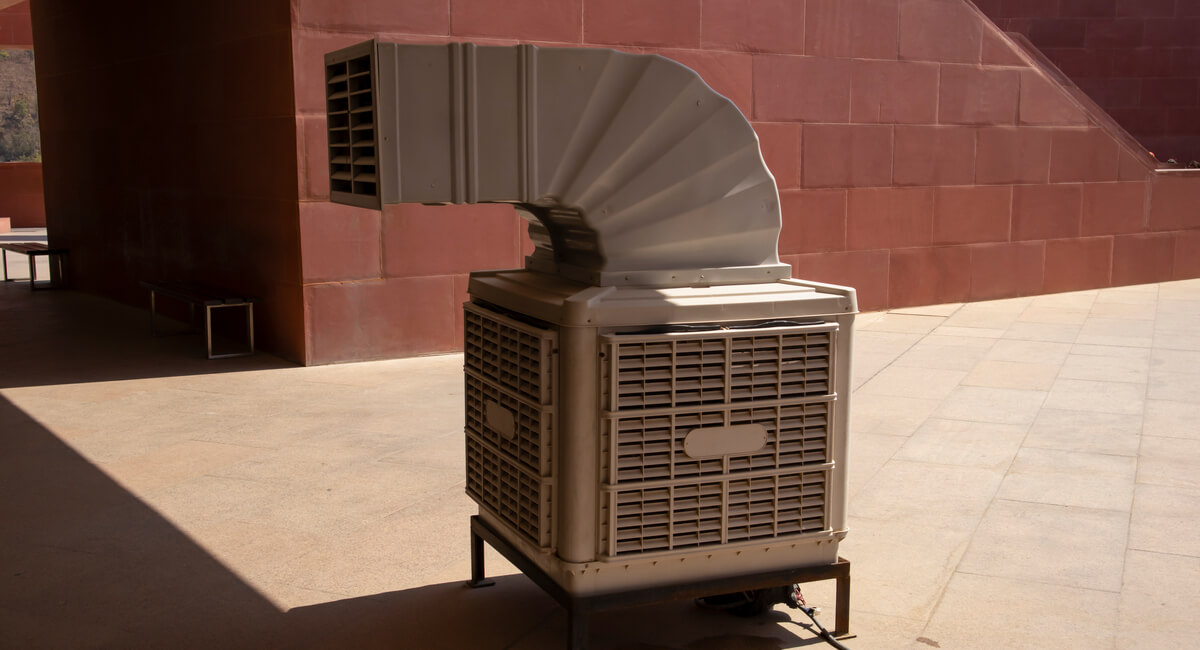
Evaporative Coolers
An evaporative cooler is a system that draws outdoor air through wet cooling pads. This causes water to evaporate from the pads, and the evaporated water molecules absorb the heat in the air. Then, a fan delivers the cool air to the home through ductwork.
Evaporative coolers consume much less energy than standard air conditioners. The system doesn’t use a compressor, which significantly cuts down on energy usage. Evaporative systems are also one of the more cost-effective options. They’re great for the air quality in your home, too.
Evaporative coolers are not ideal for extremely hot or humid climates. If the air is already humid, less water will evaporate from the cooling pad, which will result in less efficient cooling. Evaporative systems can also increase the humidity in the house. This can be beneficial to a certain extent, but excessive humidity increases the risk of mold, mildew, and other allergens.
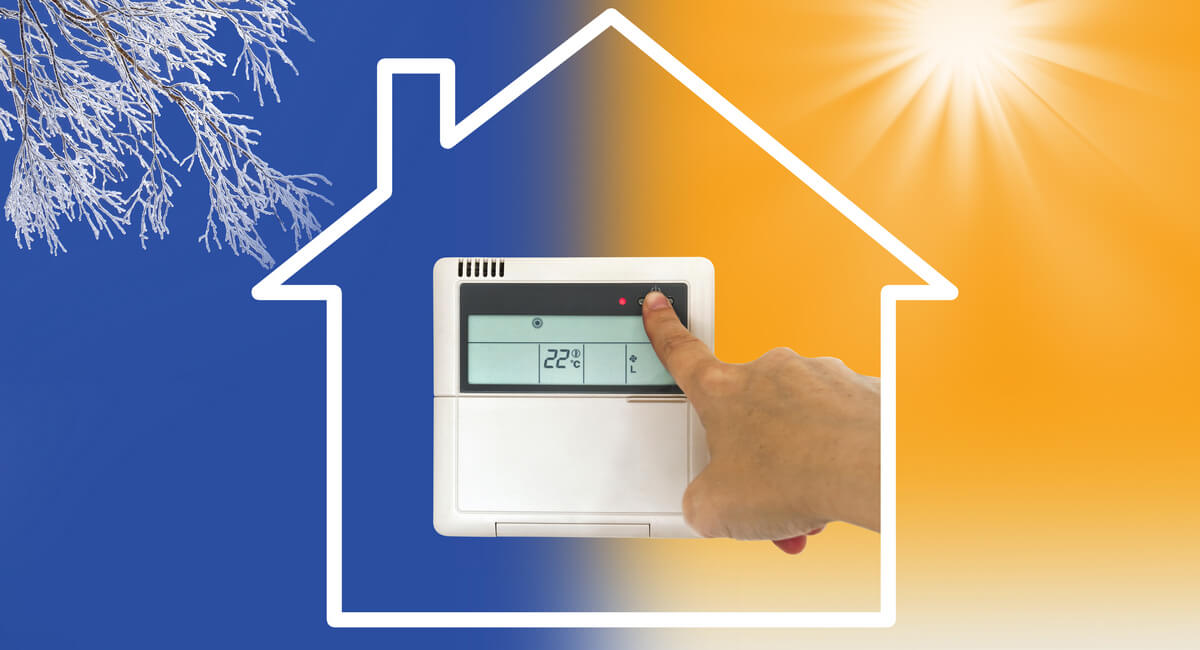
Choosing a Cooling System
Choosing the right cooling system for your home can be difficult. Every option has its pros and cons, so you have to consider your priorities as a homeowner. For most homeowners, cost is the number one concern. While a central AC system has plenty of benefits, it can be a major up-front expense if your home doesn’t have existing ductwork.
The size of your home is an important consideration as well. Window units and portable units can be great for small spaces, but larger or open-concept homes may need a more powerful system to maintain a comfortable temperature. Relying on an AC unit that isn’t equipped to sufficiently cool your home will result in more wear and tear on the unit, which can shorten its lifespan and increase your maintenance costs.
Lastly, you should consider your location when choosing an AC system. Evaporative coolers can be great for dry climates, but they’re not as effective in humid regions. If your area experiences mild summers, you may be able to cool your entire home with portable units. If you live in a hot climate, though, a more advanced system can be vital for your health and comfort.
If you’re not sure which system is the right choice, look into the most common cooling systems used by homeowners in your area or consult with an HVAC professional.

